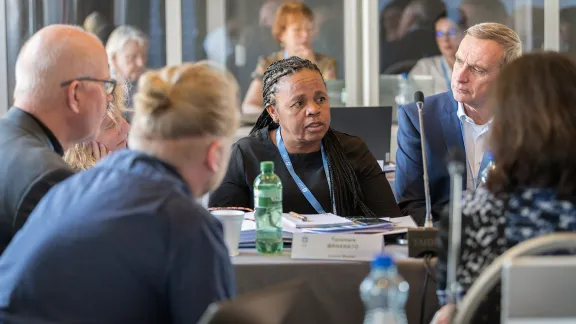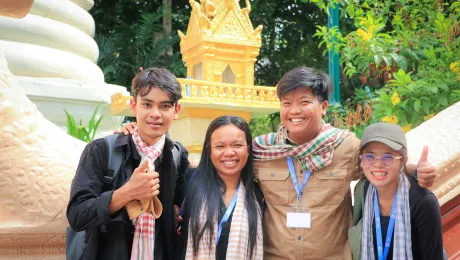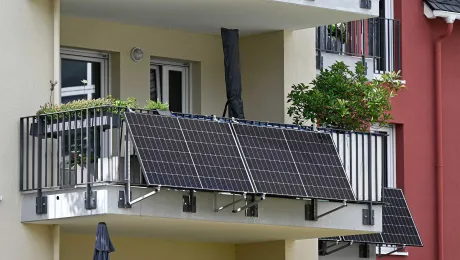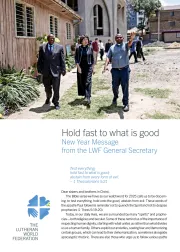
Council members in a group discussion at the June 2024 meeting. The LWF governing body appointed task forces to strengthen the communion's work in climate justice, and in fostering meaningful encounters and exchange between generations. Photo: LWF/Albin Hillert
Strengthening LWF’s commitment at all levels and ensuring equitable inclusion
(LWI) – As mandated by its Thirteenth Assembly, The Lutheran World Federation (LWF) will embark on developing policies to strengthen its work in climate justice, and in fostering meaningful encounters and exchange between generations.
The Council-appointed Task Force for Climate Justice Policy will create a comprehensive policy that highlights the connection between climate justice and Lutheran theology, emphasizing that care for creation is a vital part of God's mission. The goal is to strengthen LWF’s commitment to promoting climate justice at all levels.
The policy is expected to outline specific, measurable, achievable, relevant and time-bound targets to be achieved through the Lutheran communion’s climate justice initiatives. This includes providing a basis for the member churches to develop practical action plans that prioritize carbon neutrality and accountability. It will also seek to inspire LWF member churches to reduce carbon emissions in their specific contexts in line with the overarching action plan.
A climate justice policy will underscore LWF’s long-standing commitment to addressing an ecological crisis that adversely affects the most vulnerable people and communities across the world, noted Ms Elena Cedillo, Program Executive for Climate Justice. “It will also affirm our ongoing advocacy for a future where justice and compassion guide global climate action,” she added.
Inclusiveness and generational balance
Responding to a resolution from the 2023 Assembly and previous governing bodies’ decisions on youth participation, inclusiveness and generational balance, the Council also appointed a Task Force on Intergenerational Justice Policy. The group’s mandate is to develop a policy that aligns with LWF’s goals of inclusion and diversity, focusing on fostering meaningful encounters and exchange between generations and promoting youth leadership.
The policy will build on landmark decisions on the participation of women, youth, and lay persons made by the Seventh Assembly in 1984, and subsequent governing body decisions to ensure a 20% youth quota in all LWF’s activities. The Council noted that “this goal has yet to be fully achieved,” with both the Communion Office and many member churches “struggling to equitably include all generations in decision-making bodies, planning teams, and overall programming.”
The Council also approved the terms of reference and named LWF member church representatives who will serve in the two task forces. The members in each team meet LWF’s requirement for regional, gender and generational balance, and the prerequisite expertise. Each group will convene regularly online for content work and follow up with two in-person meetings, with support from LWF staff, and report back to the Council.


